A Washington fixer who inspired the lead character in television show Scandal has been hired to get a grip of Sony Pictures’ communications after the computer hack that exposed its secrets and sparked a bizarre showdown with North Korea.
Judy Smith, “the real Olivia Pope” who worked in the George HW Bush White House and has advised celebrity clients from Monica Lewinsky to Wesley Snipes, has the task of restoring the company’s reputation after a week when it has been accused – even by President Barack Obama – of caving in to blackmail and threats of violence.
The low point for Sony in the month-long nightmare of drip-fed personal revelations came last Wednesday when executives announced they were cancelling the Christmas Day release of The Interview, the comedy starring Seth Rogen and James Franco that depicts an assassination of North Korea dictator Kim Jong-un.
Sony said it was not releasing the film in any form, because leading cinema chains had been scared by threats of 9/11-style violence. That sparked a backlash in which celebrities, politicians and commentators accused Sony of letting terrorists win.
Criticism mounted as the FBI accused North Korea of being behind the hack attack. In his end-of-year news conference last Friday, Obama said he thought Sony had made a mistake: “We cannot have a society in which some dictator someplace can start imposing censorship here in the United States.” He vowed to retaliate against North Korea at a time and in a manner of his administration’s choosing.
Sony’s PR counter-offensive, no doubt influenced by Smith, began hours later. The company blamed the cancelled release on cinema owners. “That was their decision,” a statement said. British-born chief executive Michael Lynton said that, despite scrapping the Christmas release, he was hopeful the film could be released at some point.
“The president, the press and the public are mistaken on what actually happened,” he said. “We have not caved, we have not given in, we have persevered, and we have not backed down.”
Insiders said Sony appeared to be shifting its position while giving as strong an impression as possible that it had adopted the same line all along.
One possible reason for announcing on Wednesday that the film had been scrapped was to make an insurance claim, based on a terrorist threat, to recoup $80m in production and marketing costs. Plans for a partial or future release could invalidate that claim, one intellectual property rights lawyer familiar with big studio practices told the Observer.
By Friday, however, the company had clearly decided that insurance claims were the least of its worries. It is not known when Smith came on board, but Sony has been without a PR chief since Charles Sipkins was fired days before the 24 November computer hack.
Criticism has grown, led by actors in an eerie echo of the plotline of Team America: World Police, another Hollywood comedy featuring a North Korean dictator and also a large cast of string-puppet film stars. George Clooney told one Hollywood website, Deadline.com, that he had circulated a petition supporting a cinema release for The Interview, but nobody dared sign it. Sean Penn, known for his strong political opinions, said the way was now clear for other acts of international extortion.
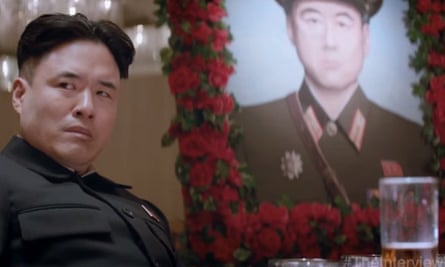
“The distributors who wouldn’t show The Interview and Sony have sent Isis a commanding invitation,” Penn said. “Pandora’s box is officially open.”
North Korea consistently denied any involvement in the Sony hack, but has now offered to help find “whoever” was responsible – using the occasion to attack the US.
“As the United States is spreading groundless allegations and slandering us, we propose a joint investigation with it into this incident,” a foreign ministry spokesman said. “Without resorting to such tortures as were used by the CIA, we have means to prove that this incident has nothing to do with us.”
Obama said his administration would respond “proportionally” as senior officials told the New York Times they had sought China’s help in recent days to block North Korea’s ability to launch cyber attacks. China, whose cooperation would be critical since virtually all of North Korea’s telecommunications run through Chinese-operated networks, is yet to respond.
The furore appeared to overshadow a second statement in which Pyongyang vowed to boost its nuclear capability and resist a UN resolution, passed on Thursday, to refer its leaders to the international criminal court for crimes against humanity.

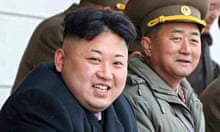
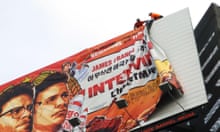


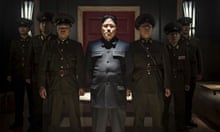

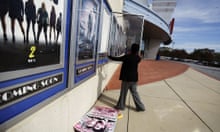
Comments (…)
Sign in or create your Guardian account to join the discussion